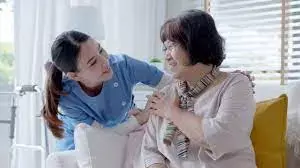- Home
- Medical news & Guidelines
- Anesthesiology
- Cardiology and CTVS
- Critical Care
- Dentistry
- Dermatology
- Diabetes and Endocrinology
- ENT
- Gastroenterology
- Medicine
- Nephrology
- Neurology
- Obstretics-Gynaecology
- Oncology
- Ophthalmology
- Orthopaedics
- Pediatrics-Neonatology
- Psychiatry
- Pulmonology
- Radiology
- Surgery
- Urology
- Laboratory Medicine
- Diet
- Nursing
- Paramedical
- Physiotherapy
- Health news
- Fact Check
- Bone Health Fact Check
- Brain Health Fact Check
- Cancer Related Fact Check
- Child Care Fact Check
- Dental and oral health fact check
- Diabetes and metabolic health fact check
- Diet and Nutrition Fact Check
- Eye and ENT Care Fact Check
- Fitness fact check
- Gut health fact check
- Heart health fact check
- Kidney health fact check
- Medical education fact check
- Men's health fact check
- Respiratory fact check
- Skin and hair care fact check
- Vaccine and Immunization fact check
- Women's health fact check
- AYUSH
- State News
- Andaman and Nicobar Islands
- Andhra Pradesh
- Arunachal Pradesh
- Assam
- Bihar
- Chandigarh
- Chattisgarh
- Dadra and Nagar Haveli
- Daman and Diu
- Delhi
- Goa
- Gujarat
- Haryana
- Himachal Pradesh
- Jammu & Kashmir
- Jharkhand
- Karnataka
- Kerala
- Ladakh
- Lakshadweep
- Madhya Pradesh
- Maharashtra
- Manipur
- Meghalaya
- Mizoram
- Nagaland
- Odisha
- Puducherry
- Punjab
- Rajasthan
- Sikkim
- Tamil Nadu
- Telangana
- Tripura
- Uttar Pradesh
- Uttrakhand
- West Bengal
- Medical Education
- Industry
Lower extremity lymphedema may jeopardize physical functioning in elderly cancer survivors: JAMA

Lower extremity lymphedema (LEL) is tied with decreased physical functioning (PF) and activities of daily living (ADLs) in older adults too according to a recent study published in the JAMA.
Lower extremity lymphedema (LEL) is associated with decreased physical functioning (PF) and activities of daily living (ADLs) limitations. However, the prevalence of LEL in older survivors of cancer is unknown.
Researchers conducted a study to examine LEL among older female survivors of colorectal, endometrial, or ovarian cancer and investigate the association of LEL with PF and ADLs.
This secondary analysis of the Women's Health Initiative (WHI) Life and Longevity After Cancer (LILAC) study was conducted using data from postmenopausal women enrolled at 40 US centers. Participants were women who had a prior diagnosis of endometrial, colorectal, or ovarian cancer and who had completed the WHI LILAC baseline and year 1 follow-up questionnaires as of September 2017.
The Results of the study are as follows:
Among 900 older women diagnosed with endometrial, colorectal, or ovarian cancer, the mean (SD) age was 78.5 (5.9) years and the mean (range) time since cancer diagnosis was 8.75 (1.42-20.23) years. Overall, 292 women (32.4%) reported LEL, with the highest LEL prevalence among survivors of ovarian cancer (38 of 104 women [36.5%]), followed by survivors of endometrial cancer (122 of 375 women [32.5%]) and colorectal cancer (132 of 421 women [31.4%]). Compared with women without LEL, women with LEL had a PF score that was lower by a mean (SE) 16.8 (1.7) points (P < .001) and higher odds of needing help with ADLs (odds ratio [OR], 2.45; 95% CI, 1.64-3.67). In the association of LEL with PF, the mean (SE) decrease in PF score was greatest among survivors of colorectal cancer (−21.8 [2.6]) compared with survivors of endometrial cancer (−13.3 [2.7]) and ovarian cancer (−12.8 [5.2]). Additionally, among survivors of colorectal cancer, LEL was associated with increased odds of needing help with ADLs (OR, 3.59; 95% CI, 1.94-6.66), while there was no such association among survivors of endometrial cancer or ovarian cancer. However, there were no interaction associations between LEL and cancer type for either outcome. Additionally, the overall mean (SE) difference in PF between women with and without LEL was greater among those aged 80 years and older (−19.4 [2.6] points) vs those aged 65 to 79 years (−14.9 [2.2] points). However, among survivors of colorectal cancer, the mean (SE) difference in PF score was greater among women aged 65 to 79 years (−22.9 [3.7] points) vs those aged 80 years or older (−20.8 [3.7] points) (P for 3-way interaction = .03).
Thus, this study found that nearly one-third of older female survivors of colorectal, endometrial, or ovarian cancer experienced LEL and that LEL was associated with decreased PF and increased odds of needing help with ADLs. These findings suggest that clinicians may need to regularly assess LEL among older survivors of cancer and provide effective interventions to reduce LEL symptoms and improve PF for this population.
Reference:
Association of Lower Extremity Lymphedema With Physical Functioning and Activities of Daily Living Among Older Survivors of Colorectal, Endometrial, and Ovarian Cancer by Xiaochen Zhang, et al. published in the JAMA.
Keywords:
Lower Extremity Lymphedema and cancer, Older Survivors of Colorectal, Endometrial, and Ovarian Cancer, Colorectal, Endometrial, and Ovarian Cancer, Physical Functioning and Activities of Daily Living with cancer, Xiaochen Zhang, Eric M. McLaughlin, Jessica L. Krok-Schoen, Michelle Naughton, Brittany M. Bernardo, Andrea Cheville, Matthew Allison, Marcia Stefanick, Jennifer W. Bea, Electra D. Paskett,
Dr. Shravani Dali has completed her BDS from Pravara institute of medical sciences, loni. Following which she extensively worked in the healthcare sector for 2+ years. She has been actively involved in writing blogs in field of health and wellness. Currently she is pursuing her Masters of public health-health administration from Tata institute of social sciences. She can be contacted at editorial@medicaldialogues.in.
Dr Kamal Kant Kohli-MBBS, DTCD- a chest specialist with more than 30 years of practice and a flair for writing clinical articles, Dr Kamal Kant Kohli joined Medical Dialogues as a Chief Editor of Medical News. Besides writing articles, as an editor, he proofreads and verifies all the medical content published on Medical Dialogues including those coming from journals, studies,medical conferences,guidelines etc. Email: drkohli@medicaldialogues.in. Contact no. 011-43720751


